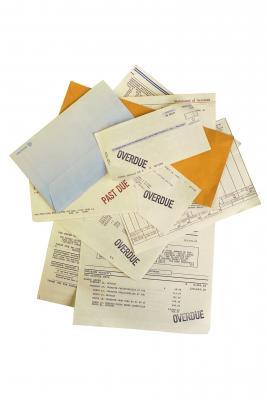 DID YOU KNOW.... If your relative other than a spouse leaves unpaid debts when they die, you do not have to pay them? Even a spouse might not be responsible under certain circumstances, but always check with a lawyer to see if you have any obligation. The estate of the deceased is responsible for paying any outstanding debts. You should refer debt collectors to the individual responsible for settling the estate of the deceased.
DID YOU KNOW.... If your relative other than a spouse leaves unpaid debts when they die, you do not have to pay them? Even a spouse might not be responsible under certain circumstances, but always check with a lawyer to see if you have any obligation. The estate of the deceased is responsible for paying any outstanding debts. You should refer debt collectors to the individual responsible for settling the estate of the deceased.
If there is not enough money in the estate to cover all debts, a debt collector might contact family members and try to get them to pay their relative's debts. A family member who has not cosigned a loan, does not have a joint credit card account, and is not involved in any other legal contract has no obligation to pay any of the balance beyond what is paid from the estate of the deceased.
According to the Federal Trade Commission, "If you decide that you don't want a debt collector to contact you again, write a letter to the collector saying so. Then, make a copy of your letter, send the original by certified mail, and pay for a ‘return receipt' so you will be able to document what the collector received and when. Once the collector receives your letter, they may not contact you again, with two exceptions: a collector can contact you to tell you there will be no further contact and to let you know that they or the creditor plan to take a specific action, like filing a lawsuit. Remember that even though the collector is prohibited from contacting you again, they still may sue the estate of your relative or the legally responsible person to collect the debt."
The rights of surviving relatives are covered by the Fair Debt Collection Practices Act, which the FTC enforces. The FTC has developed a new consumer fact sheet about this issue, "Paying the Debts of a Deceased Relative: Who Is Responsible?" To learn more, go to http://www.ftc.gov/bcp/edu/pubs/consumer/alerts/alt159.shtm.
